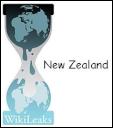|
| ||
SPC seeks new sources of vital health funding |
||
SPC seeks new sources of vital health funding
Secretariat of the Pacific Community, Noumea, Friday 29 October 2010—The Secretariat of the Pacific Community (SPC) is seeking new sources of funding to sustain the long-term battle against the epidemic of non-communicable diseases (NCDs) which kill more than half of the region’s people prematurely.
Delegates at the 40th meeting of SPC’s Committee of Representatives of Governments and Administrations (CRGA) in Noumea voiced concern on Wednesday that SPC’s public health division could lose some of its technical capacity to respond to this high priority health concern and on pandemic preparedness.
The division’s director, Mr Bill Parr, told the meeting that one of the largest health projects managed by SPC—the AUD$26million Pacific NCD Programme funded by Australia and New Zealand—was due to finish at the end of 2011.
Fiji described this work as ‘vital to our communities’ and for which development partners should be thanked. It was concerned though about the loss of funding and suggested that SPC seek support from alternative, non-traditional sources such as China to ‘lighten the load carried by our traditional donors’.
Samoa noted the bleak picture for the Pacific of having amongst the world’s highest rates of NCDs—such as heart disease, diabetes and cancer—and plateaus in life expectancy rates in many countries of the Pacific. It wanted to associate with Fiji in its call on CRGA to recommend alternative, non-traditional donors.
The work of SPC on NCDs, TB and influenza preparedness was greatly appreciated, Federated States of Micronesia (FSM) and Kiribati said. They were concerned that the division may lose some of its capacity to respond on these issues.
New Zealand noted the concerns and added that as projects concluded and countries now had national strategies, there was a need to reflect on what needs to be delivered at a regional level.
In response to the submissions, SPC Director-General Dr Jimmie Rodgers said it was crucial that countries had the capacity to manage large grants such as those from the Global Fund on malaria and from AusAID and NZAid on NCDs.
As countries developed this capacity, SPC could withdraw from managing grants. But in the meantime if they requested help, SPC could not decline on the basis of it not being defined as a ‘regional’ project.
SPC had meanwhile started talking to new potential development partners and were keen to follow through to ensure the long-term sustainability of assistance.
“We are reasonably good fisher folks (in the region) and our lines are out there,” he told the meeting.
With 63% of its health budget tied up in grant management of disease-specific projects, Dr Rodgers said SPC was working on an exit strategy from managing funds.
“We do not see grant management as a long-term role for SPC,” he said.
Likewise, in areas where SPC has expertise, it would prefer development partners first use SPC’s technical assistance expertise on national projects. The tendency was to use consultants, which while good usually, did not leave behind a backstopping provision of assistance. It was very important that SPC become the first stop in dealing with countries.
At the request of its member countries, the public health division was being restructured from a disease and development funding focus to a ‘whole of health’ and country-based approach to support the 1995 Healthy Islands vision of Pacific Islands health ministers.
When completed in early 2011, the division will have four new units: disease surveillance, research, control and response; health advancement; grant management; and quality, performance and management support.
Mr Bill Parr said the high reliance on project funding represented a particular vulnerability for the division.
In spite of the challenges of the restructure, Mr Parr said the division continued to make a difference in the region in 2010. He cited SPC projects with other agencies that helped reduce mortality and prevalence rates of TB (down 39% and 43% respectively from 2000 to 2010 [latest WHO revised estimates]), and the incidence of confirmed malaria (down 60% over the past seven years).
Thanks to the SPC-led Pacific NCD programme with WHO, 14 Pacific Islands countries and territories have national NCD plans and 80 per cent of countries and territories are covered. Fifteen major country contracts have been signed, 12 health professionals appointed as national NCD coordinators, and 48 small grants awarded to 18 countries on projects aimed at the key risk factors of smoking, excessive alcohol consumption, physical activity and nutrition.
More people are receiving HIV counseling and testing. Diagnosis and treatment of sexually transmitted infections (STIs) among pregnant women are increasing, Mr Parr said. In some countries 40 per cent sexually active young people have Chlamydia.
The division had also contributed positively to health system strengthening, preparedness for disease outbreaks, laboratory and diagnostic services, health financing, procurement and supply management systems.
A total of 44 training course were delivered to 478 health workers in 12 PICTs, and 33 national health positions financed through grants in the year to date.
ends


 Scoop Link: Brisbane Suburbs Start To Count The Cost After Flood
Scoop Link: Brisbane Suburbs Start To Count The Cost After Flood Flooding: UNICEF Responds To Sri Lanka Floods
Flooding: UNICEF Responds To Sri Lanka Floods UNICEF: Photo Gallery - Haiti Earthquake One Year On
UNICEF: Photo Gallery - Haiti Earthquake One Year On The White House: U.S President Obama Speaks On The Shootings In Tucson
The White House: U.S President Obama Speaks On The Shootings In Tucson World Bank: Most Developing Countries Have Now Recovered From Crisis
World Bank: Most Developing Countries Have Now Recovered From Crisis The Scoop Team: Full List Of Wikileaks Published On Scoop – 10-01-11
The Scoop Team: Full List Of Wikileaks Published On Scoop – 10-01-11 World News: Sharing Power – The End Of ‘fortress’ Conservation?
World News: Sharing Power – The End Of ‘fortress’ Conservation?